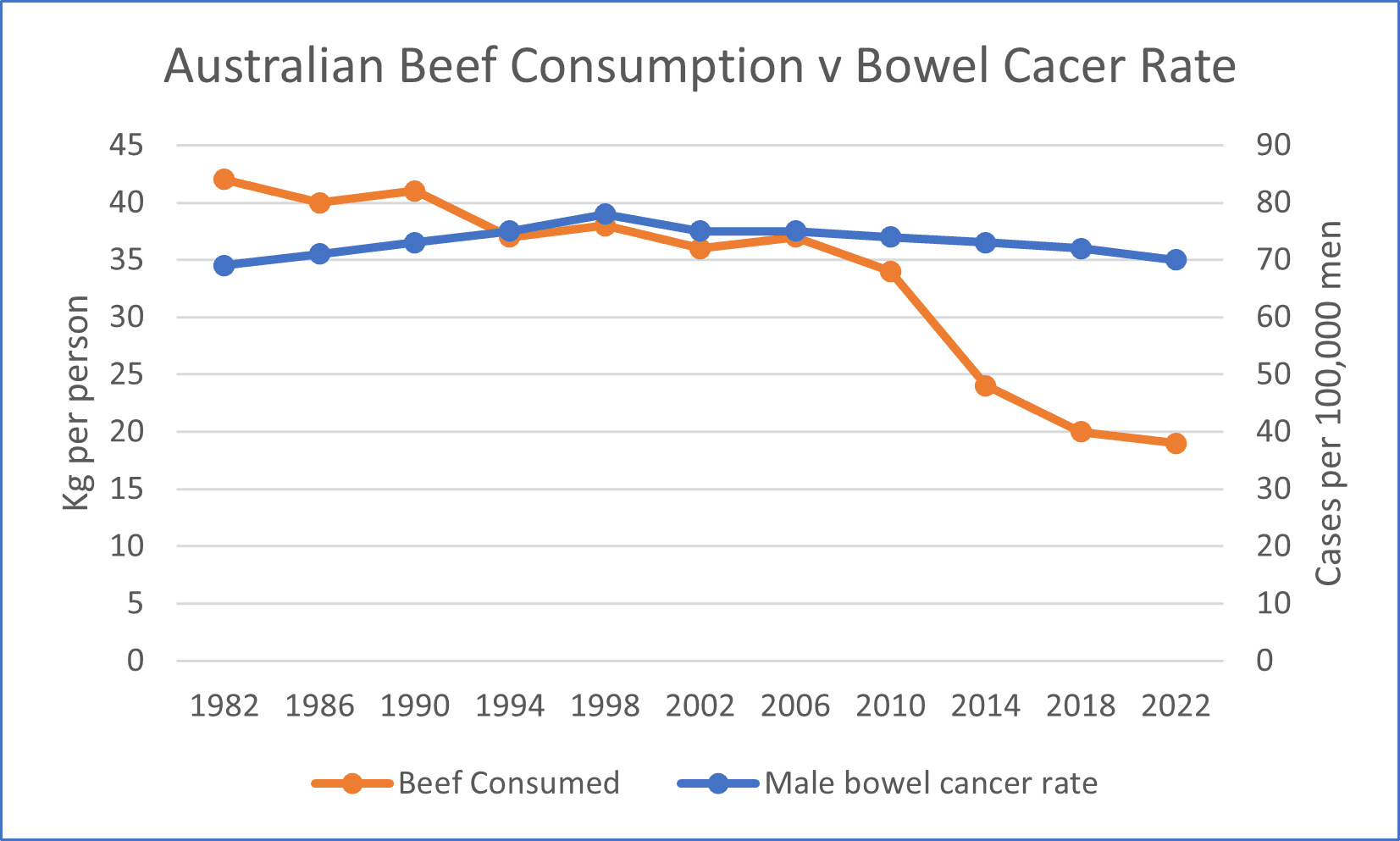
A COMMENT in a July 4 ABC News item by Australian colorectal surgeon Dr Carina Chow caught my eye. She stated that Bowel Cancer Australia figures suggest that during the past three decades bowel cancer incidence rates in 15 to 24-year-olds have jumped 266 percent.
To someone outside the medical world this seemed striking, but some further investigation reveals this to be a common trend in most developed nations, especially in young adults aged 20-39 years.
While bowel (colorectal) cancer remains predominantly a disease of the older (50+ years) population, such increases among younger people remain concerning and unexplained.
Since at least the 1970s (Armstrong & Doll, 1975) there has been a known correlation between red meat consumption and bowel cancer. For many years fresh and processed meats (salted, smoked, cured, fermented) were lumped together as a factor in bowel cancer, but more recent research has determined an “assured” link to processed meat, and a “probable” link to fresh meat.
Likely cancer-causing chemicals such as haem, nitrates and nitrites, heterocylic and polycyclic amines have been identified. These chemicals are not specific to red meat, and the exact mechanisms by which they might cause cancer, specifically bowel cancer, do not appear to be clear, but remain a subject of very active research.
Red meat, particularly fresh red meat, therefore, is implicated by association rather than known cause. This association has resulted in the Australian dietary guidelines and the Cancer Council both recommending consumption of red meat be limited to 455 grams per week, or 24kg per year. Australians on average eat nearly twice that amount.

Consumption changes
Beef and pork are the predominant red meats eaten in Australia. The consumption of beef per capita has been declining in Australia for decades. Except for a brief spike in 1975 (due to the abundance of cheap beef during the Beef Slump), consumption of beef in Australia has declined from 46kg per capita in 1962 to 18.8kg per capita in 2022 – a 60pc decline. Consumption of pork increased from 9kg in 1962 to 20.2kg per capita in 2021. After peaking at 28kg per capita in about 2014, pork consumption has been in steady decline since.
With a substantial reduction in per capita consumption of beef, and a ten-year plateau or steady decline in the consumption of pork, what do we make of the correlation between red meat consumption and the incidence rates of bowel cancer?
Bowel cancer rates are decreasing in older Australians, mostly assisted by screening, but are increasing at a concerning rate in younger Australians. Surely the previous assumptions that a correlation between red meat consumption and bowel cancer must indicate a cause, are now increasingly subject to caution and scepticism.
Perhaps it’s time to look more closely at more elements in the diet, along with other risk factors like alcohol, obesity, sedentary lifestyle (even if not obese), smoking, vaping and other trends relevant to younger people.

Greg Campbell
* Author Greg Campbell is a former chief executive of S. Kidman & Co
